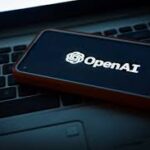Artificial Intelligence, Democracy, & the Future of Civilization | Yoshua Bengio & Yuval Noah Harari
Before reading this article, I strongly recommend to watch this important video highlighting the dark sides of Artificial Intelligence and telling new dimensions and implications of AI. Yuval Noah expressed his views that there are two things to know about AI it’s the first technology in history that can make decisions by itself. AI is the first technology in history that can create ideas by itself.
Lots of people are now trying to calm us down by telling us that every time there is a new technology people are afraid of the consequences and in the end we manage okay but this is nothing like anything we’ve seen before in history you know whether it’s a stone knife or an atom bomb on previous tools empowered us because it was humans who had to decide how to use the bomb but AI can make decisions by itself so it potentially takes power away from us secondly all previous information technology in history they could only reproduce or spread the ideas of human. Watch the powerful discussion and explore new ideas from this video.
The Dark Side of AI: Examining the Ethical Dilemmas of Automated Decision Making

Dark Side of AI
Artificial Intelligence (AI) has been touted as the next big thing in technology that will revolutionize how we live and work. It can make our lives easier, faster, and more efficient. However, as with any technological advancement, there are concerns about its impact on society. One of the most significant concerns is the ethical dilemmas surrounding automated decision-making. While AI can process vast amounts of data and make decisions at lightning speed, it also has the potential to reinforce biases and perpetuate discrimination. As we rely more on AI to make decisions that affect our lives, we must examine the dark side of AI and the ethical dilemmas that come with it. This article will explore some critical ethical concerns surrounding automated decision-making and its impact on society.
The Benefits of AI and Automated Decision Making:
AI can transform various industries, from healthcare to finance to transportation. Automated decision-making can help businesses make faster, more accurate decisions, reducing costs and increasing productivity. For example, AI algorithms can analyze vast amounts of data to identify patterns and trends humans may miss. This can help businesses make more informed decisions about their operations, such as which products to stock, which customers to target, and which marketing strategies to use.
In healthcare, AI can help doctors diagnose diseases and develop treatment plans. Automated decision-making can analyze medical records and predict potential health issues, allowing doctors to take preventive measures before a condition worsens. AI can also help researchers develop new drugs and therapies, accelerating the pace of medical innovation.
The Ethical Concerns Surrounding AI and Automated Decision Making:
While AI can potentially bring significant benefits, it also raises ethical concerns. One of the most critical concerns is bias in automated decision-making. The data training AI algorithms determines how biased they are. If the data contains biases, the algorithm will learn and perpetuate them. This can lead to discrimination against certain groups of people, such as women, minorities, and the elderly.
Another concern is the impact of AI on job displacement. As it will automate more tasks, there is a risk that it will lose jobs, and jobless many leaving many people in future. This can significantly impact society, leading and increase inequality and social unrest.
Privacy and security are also concerns with AI. As AI algorithms collect and analyze vast amounts of data, there is a risk that it can leak or steel sensitive information. This can lead to identity theft, financial fraud, and other security breaches.
Bias in Automated Decision Making:
One of the most significant ethical concerns surrounding AI is bias in automated decision-making. AI algorithms are only as unbiased as the data they are trained on. If the data contains biases, the algorithm will learn and perpetuate them. This can lead to discrimination against certain groups of people, such as women, minorities, and the elderly.
For example, a study by ProPublica found that a popular AI algorithm used by the US justice system to predict recidivism rates was biased against black defendants. The algorithm predicted that black defendants were more likely to re-offend than white defendants, even when controlling for other factors such as criminal history. As a result, black defendants received longer prison sentences compared to white defendants with similar criminal records.
Another example is facial recognition technology, biased against people of colour and women. A study by the National Institute of Standards and Technology found that some facial recognition algorithms were 100 times more likely to misidentify people of colour than white people.
The Impact of AI on Job Displacement:
Another significant ethical concern surrounding AI is the impact of automated decision-making on job displacement. As more tasks are automated, there is a risk that jobs will be lost, leaving many people unemployed. This can significantly impact society, leading to increased inequality and social unrest.
A study conducted by the McKinsey Global Institute revealed that automation could potentially lead to the loss of up to 800 million jobs worldwide by 2030. The study identified manufacturing, agriculture, and customer service jobs as the most susceptible to automation.
However, some experts argue that AI will create new jobs and opportunities in the healthcare, education, and entertainment industries. For example, AI can help doctors diagnose diseases and develop treatment plans while creating new jobs in data analysis and programming.
Privacy and Security Concerns with AI:
Privacy and security are also concerns with AI. As AI algorithms collect and analyze vast amounts of data, there is a risk that sensitive information can be leaked or stolen. This can lead to identity theft, financial fraud, and other security breaches.
For example, a study by researchers at the University of Washington found that it was possible to use AI algorithms to recreate people’s faces from photos posted on social media. This raises concerns about the privacy of personal information and the potential for misuse of such data.
Another example is the use of AI in surveillance systems. As AI algorithms become more advanced, they can be used to monitor and track individuals, raising concerns about privacy and civil liberties.
The Responsibility of Companies and Developers in Creating Ethical AI:
The responsibility of companies and developers in creating ethical AI cannot be overstated. As AI becomes more widespread, companies and developers must prioritize ethical considerations in developing and deploying AI systems.
One approach is to create ethical guidelines and principles for AI development. For example, the IEEE Global Initiative on Ethics of Autonomous and Intelligent Systems has developed a set of principles for ethical AI, including transparency, accountability, and the protection of privacy and security.
Another approach is to involve diverse voices in the development of AI systems. By actively identifying and addressing biases in data and algorithms, we can guarantee that AI systems are designed to benefit all members of society, rather than favoring only a select few.
Solutions to Ethical Dilemmas in AI:
There are several solutions to the ethical dilemmas surrounding AI. One solution is to increase transparency and accountability in AI decision-making. This can be achieved by requiring companies to disclose how their AI systems work and what data they use to make decisions. It can also involve creating oversight bodies to monitor the use of AI and ensure that it aligns with ethical principles.
Another solution is to invest in education and training programs to help workers adapt to the changing job market. As more tasks are automated, workers must have the skills and training to succeed in new industries and roles.
Finally, it is essential to involve diverse voices in developing AI systems. Taking the initiative to identify and address biases in data and algorithms helps ensure that AI systems are designed with the intention of benefiting all members of society, rather than favoring a specific group.
The Importance of Transparency and Accountability in AI:
Transparency and accountability are critical in ensuring that AI is developed and deployed ethically. Companies must be transparent about how their AI systems work and what data they use to make decisions. It also means that oversight bodies must monitor the use of AI and ensure that it aligns with ethical principles.
One example of transparency and accountability in AI is the European Union’s General Data Protection Regulation (GDPR). The GDPR requires companies to be transparent about collecting and using personal data and obtain explicit consent from individuals before collecting their data. Additionally, it enables individuals to actively request the deletion or correction of their data.
Conclusion: Striking a Balance Between Innovation and Ethics in AI:
In conclusion, AI has the potential to transform various industries and make our lives easier, faster, and more efficient. However, it raises significant ethical concerns, including bias in automated decision-making, job displacement, and privacy and security concerns.
Companies and developers must prioritize ethical considerations in developing and deploying AI systems. We can achieve this by creating ethical guidelines and principles, involving diverse voices in the development of AI systems, and increasing transparency and accountability in AI decision-making processes.
Ultimately, striking a balance between innovation and ethics in AI is crucial. By doing so, we can harness the power of AI to benefit all members of society while ensuring that it aligns with our values and principles.
